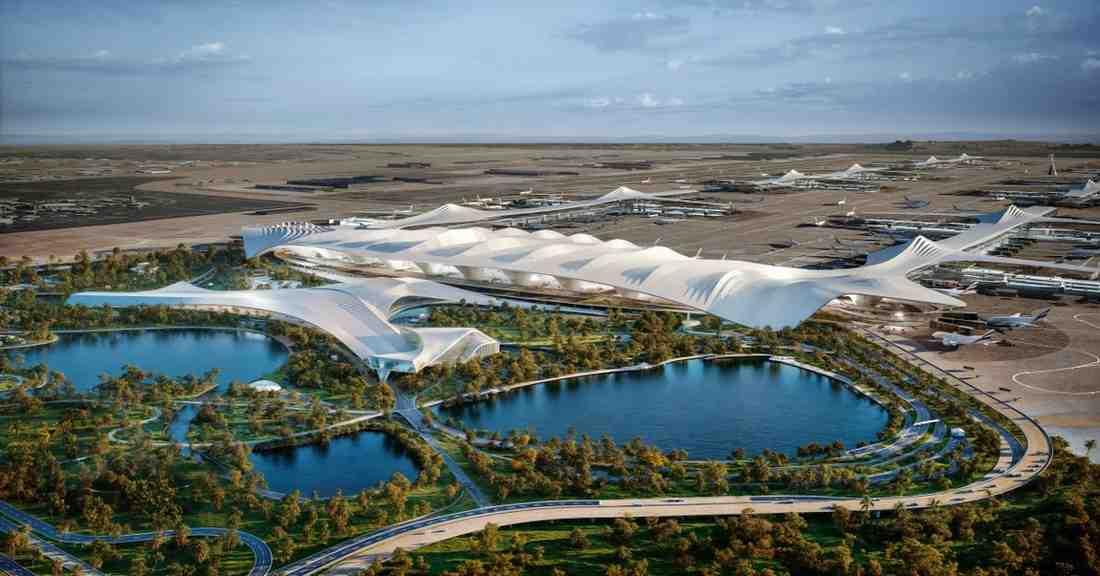Dubai Airports Considers Delaying Staff Retirements During Historic Transition to Al Maktoum International
In an unprecedented move for the aviation industry, Dubai Airports is considering asking long-serving employees to postpone their retirement to facilitate one of the world's most ambitious airport transitions. The massive operational shift from Dubai International Airport (DXB) to the new Al Maktoum International Airport (DWC) at Dubai World Central requires retaining experienced personnel to ensure a seamless transition.
Why Retirement Delays Are Essential for the Transition
The core challenge driving this potential decision is the need to operate both DXB and Al Maktoum International simultaneously during the critical "testing and ramp-up" period. According to Dubai Airports CEO Paul Griffiths, this dual-airport operation will create staffing requirements that exceed what's needed for a single facility.
Griffiths explained the situation clearly: "Anyone that's planning to retire across that opening period probably may have to delay their plans … we'll need more than one airport's worth of staff."
Retaining experienced staff is viewed as crucial for three key reasons:
- Preserving institutional knowledge of complex airport systems
- Mentoring new and transferred employees during the transition
- Maintaining operational continuity and safety standards across both facilities
The Massive Scale of the DXB to DWC Transition
The Dubai government's formal announcement in April 2024 set in motion a decade-long transition plan. The centerpiece is a massive Dh128 billion passenger terminal at Al Maktoum International, designed to ultimately handle 260 million passengers annually - more than double DXB's current capacity.
The urgency for this expansion is evident from current traffic figures. DXB processed 46 million passengers in the first half of 2025 alone, marking its busiest first half in history. Passenger numbers continue to grow, with projections indicating DXB will reach 100 million annual passengers within 18 months and approach approximately 115 million by 2031. The complete operational handover to Al Maktoum is targeted for around 2032.
Operational Complexities of Dual-Airport Management
Running two mega-airports simultaneously presents extraordinary logistical challenges that require coordination across multiple domains:
- Airline operations and scheduling
- Ground handling services
- Security protocols and personnel
- Maintenance and air traffic control
- Passenger services and terminal management
In this high-stakes environment, experienced staff provide irreplaceable value through their deep understanding of procedures, established relationships with airlines and suppliers, and proven crisis management capabilities. While delaying retirements represents a significant request of employees, it's currently viewed as the most effective way to prevent operational disruptions during the transition.
Balancing Benefits and Risks
The potential retirement delay strategy offers several significant advantages:
- Mitigating institutional knowledge loss that could take years to rebuild
- Ensuring operational resilience during the most complex phases
- Reducing training burdens on new staff
- Preserving leadership continuity when it's needed most
However, the approach also carries substantial risks:
- Employee dissatisfaction and potential morale issues
- Personal planning disruption for those nearing retirement
- Compensation and benefits complexity for HR departments
- Potential burnout among staff asked to extend their careers
The Path Forward for Dubai's Aviation Ambitions
The transition to Al Maktoum International represents more than just an airport relocation—it's a strategic investment in Dubai's future as a global aviation hub. The new facility will incorporate cutting-edge technology and infrastructure designed to position Dubai for continued growth over the coming decades.
As the multi-year transition progresses through construction, systems testing, and operational transfers, how Dubai Airports manages its human capital may prove as critical as the physical and logistical aspects of the move. The potential retirement delay initiative underscores the vital importance of experienced personnel in executing one of aviation's most complex transitions successfully.




